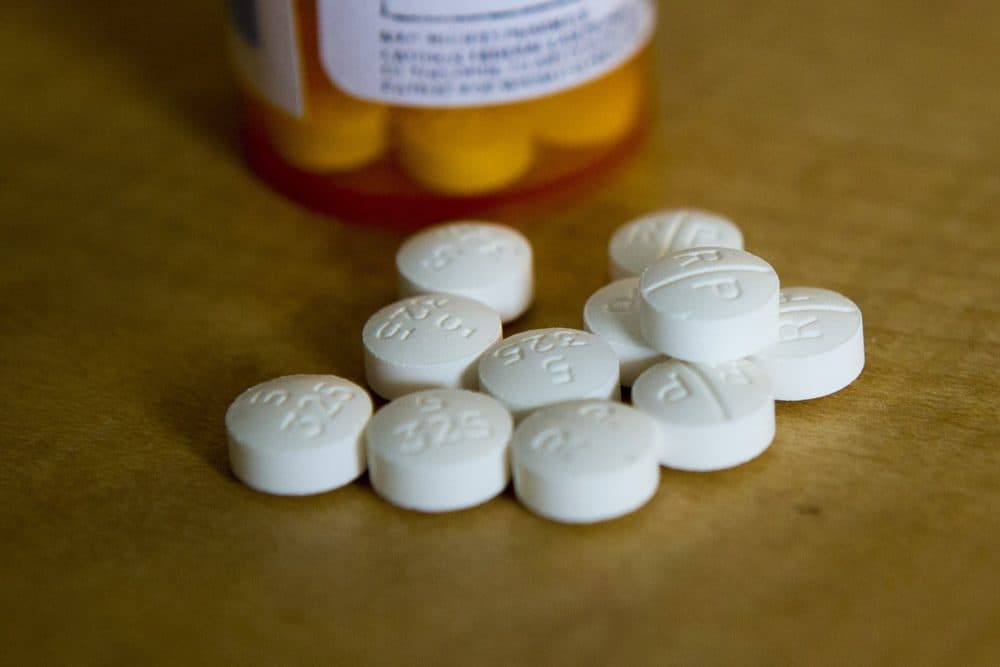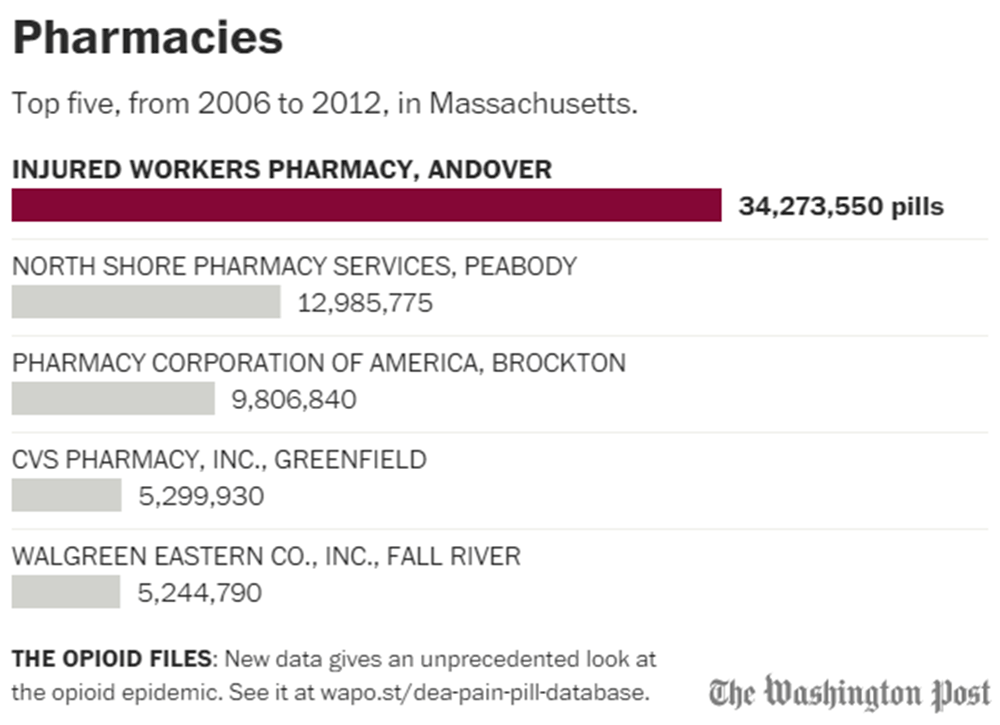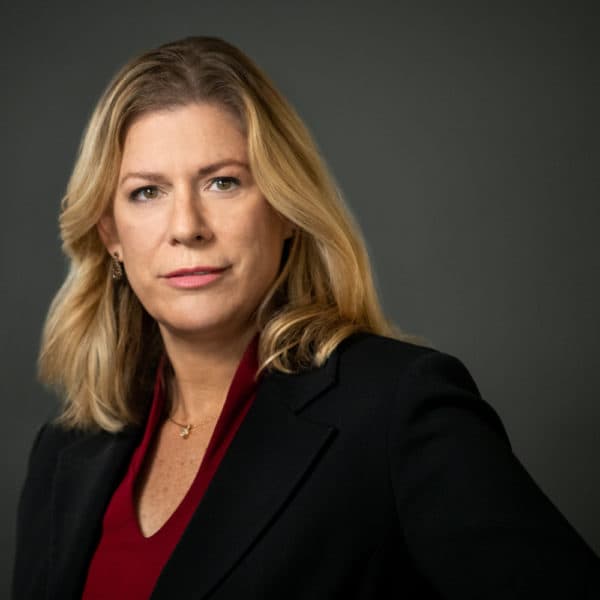Advertisement
Millions Of Opioid Pain Pills Flowed Into Mass. Pharmacies, Data Show
Resume
A specialty Massachusetts pharmacy that delivers medication to patients' doorsteps received more than 34 million opioid pain pills in recent years, federal data show.
Injured Workers Pharmacy (IWP), of Andover, is a home delivery pharmacy, set up to work with attorneys on worker’s compensation claims and personal injury lawsuits across the country. It was established in 2001.
“We take the burden of denied medications away, and ship medications right to your doorstep with little to no upfront costs to you,” states the company’s website. “Whether you’re injured at work, in a car accident, or any in between, we believe you should be entitled to excellent prescription care.”
Reached on Thursday, IWP President Michael Gavin said the company is owned by a private equity firm and that he didn’t want to comment.
In a statement Wednesday, a company spokeswoman said IWP shouldn't be compared with national pharmacy chains' individual storefronts because it ships medication to injured workers across the country, while most retail pharmacies serve a small geographic area.
Indeed, it's not immediately clear where IWP and other retail pharmacies in the database distributed those pills, or how many went to Massachusetts patients.
The Drug Enforcement Administration data, obtained by the Washington Post, show that from 2006 to 2012, Massachusetts received 1.28 billion prescription oxycodone and hydrocodone pills. This is the first time information has been released that shows the scope of distribution in the state.
The Post and several other media outlets successfully sued for the release of DEA data that tracks prescription pain pills across the country from the manufacturer, distributor and pharmacies. A court order forced the DEA to reveal the never before seen data in connection with the multi-jurisdiction lawsuit in Ohio against several pharmaceutical companies that manufacture pain medication.

The other pharmacies in Massachusetts that received the most pain pills are not located in the state's biggest communities. For instance: The North Shore Pharmacy Services of Peabody (also known as CVS and Omnicare), which distributes medications regionally, received almost 13 million pills in that seven-year period. No one from the pharmacy returned a call for comment.
Fourth on the list of pharmacies in Massachusetts receiving pain pills is a CVS in Greenfield, which received 5.3 million pills. In total the pharmacies in this small city had 9.5 million pills sent to them.
Greenfield Mayor William Martin says "the number is extraordinary, and we're a community of 17,500 and that's 500 to 600 pills per person, and it doesn't seem like we're in that much pain here."
Martin says the opioid problem has affected the school system and overwhelmed the city's police and fire departments. Greenfield was the first Massachusetts city to join the national lawsuit against the pharmaceutical companies for their opioid sales practices, he says.
Millions of pills were shipped to other small communities. For example, a CVS in Gardner, which has 20,640 people, received 4.8 million pills.
The tally of pain medication going to pharmacies in Brockton was staggering, with more than 40.4 million pills. And according to the Post analysis, Dukes County had the highest concentration of pills per person. It states the county, which includes Martha's Vineyard, received 38.5 pills per person each year.
The largest manufacturer of the pain pills was SpecGx, which made more than 626 million pills over the seven-year period.
Massachusetts Attorney General Maura Healey is suing Purdue Pharma, which introduced OxyContin, and its owners, for their role in the state's opioid epidemic.
According to the DEA data, Purdue produced 4.6% of the prescription pain pills that landed in Massachusetts from 2006 to 2012.
In 2007, Purdue pleaded guilty to misleading doctors and patients about the risks of addiction.
Correction: An earlier version of this story included a Washington Post graphic that mislabeled pharmacies as manufacturers. We regret the error.
This article was originally published on July 18, 2019.
This segment aired on July 19, 2019.
